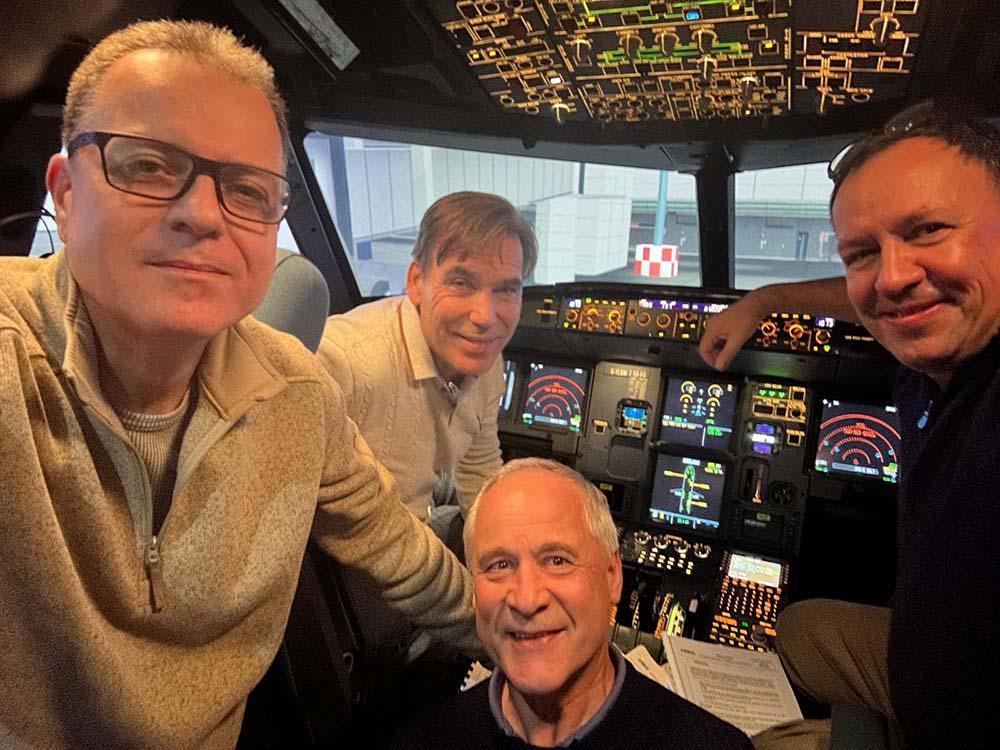
From left: Mladen Zunic, director at Salient; Charles Pantlin, head of standards for A330, Maleth Aero; Frank Chapman, director at Salient; and Phil Stockton, Maleth Aero's director of flight operations.
ACMI and charter services provider Maleth Aero is the first organization of its kind to utilize the new maintenance check flight pilot training devised by Salient, an evidenced-based pilot training business.
Salient’s maintenance check flight (MCF) program was launched last year to help reduce risks for smaller fleet operators. MCFs are required for any aircraft that has undergone extensive maintenance, transitioning through periods of storage, and when transferring ownership from one operator to another.
Philip Stockton, Maleth Aero’s director of flight operations, and Charles Pantlin, head of standards for the company’s Airbus A330 fleet, have both completed the first part of their training. This means they will soon be qualified to conduct MCFs to a Level A—the highest level of qualification mandated by the relevant European Union Aviation Safety Agency (EASA) regulation.
According to Salient, MCFs can be as simple as testing the landing gear after a long period on the ground, to more complex operations such as the in-service technical flight profile mandated by some manufacturers, which requires specially trained crews.
Salient’s MCF training program was designed for operators like Maleth Aero in mind, suggests Frank Chapman, a director at Salient and an ex-Airbus test pilot. “Large airlines and operators often have their own MCF-qualified crews but ACMIs will probably not,” he says.
Additionally, the course is designed to reduce the risk to pilot and aircraft, and to ensure essential flight data is effectively captured and reported—which is often the key purpose of the flight.
Maleth Aero conducted a thorough review of the options in the market before opting for the Salient solution, including various courses and the Airbus technical flight familiarization training. Pantlin says Salient’s offering provides comprehensive training to manage the more challenging MCFs with confidence.
Maleth Aero’s MCF training included two days of ground school and simulator instruction to address the specific skills, knowledge and procedures required to safely complete an MCF. Pilots must be trained to the level required to conduct the check flight while the aircraft owner and maintenance organization must similarly ensure the pilots are qualified and compliant to conduct the planned operation.
Pantlin and Stockton will complete their course with a further live test flight, at which point they will be fully qualified in compliance with EASA’s regulations.
Chapman adds: “There is a common misconception that to conduct a maintenance check flight, all you need is to be type rated and follow the manufacturer’s manual. Check flights can include high workload tasks, so giving pilots the confidence and the skills to operate safely and effectively is our goal.”
The training was provided through Salient’s EASA-approved training organization to satisfy EASA requirements for PCFs.





